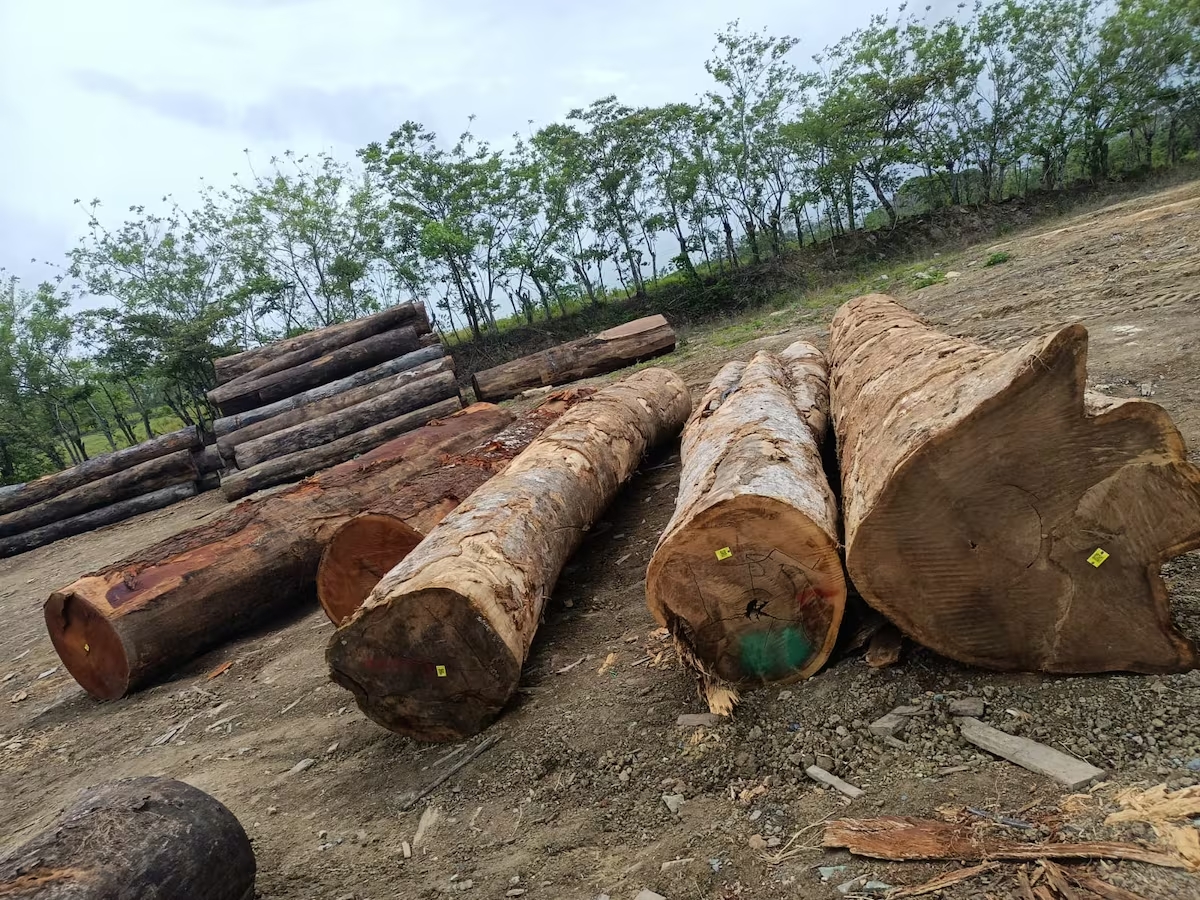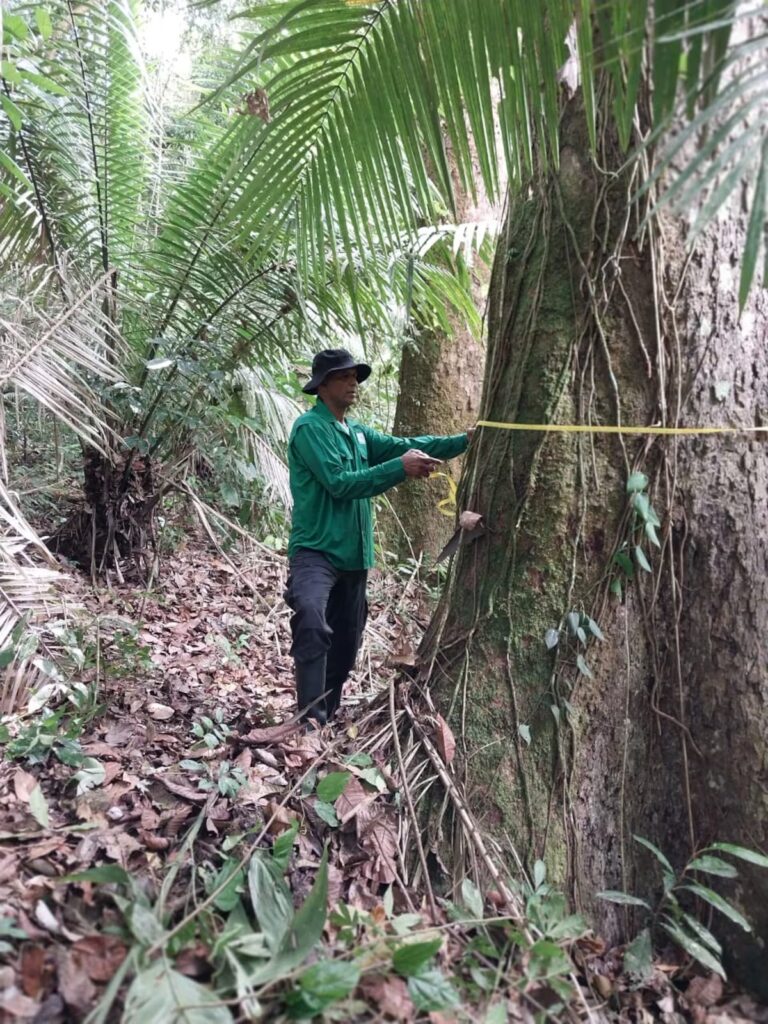Efforts to Combat Illegal Timber Trafficking
Authorities and private companies are seeking to promote sustainability and the responsible use of forest resources in Panama.
- June 26, 2024
- 9:25 am
Yaritza Mojica

Reducing illegal logging and timber extraction is one of the objectives aimed at consolidating a forest management base through the implementation of Panama’s Forest Traceability and Control System (STCF).
This system, established by Resolution DM-006-2018 on February 27, 2018which creates the Forest Traceability and Control System (STCF) of the Ministry of Environment (MiAmbiente),has enabled the tracking of trees from their point of origin, identifying the origin of the timber, and verifying the legality of the wood.
Additionally, with traceability, electronic devices (blue and yellow) have been implemented on trees and logs, allowing for the identification and registration of the trees.
Álvaro Castillo, a forestry engineer from the Forestal Directorate of Miambiente, explained that last year, 10 cases of attempted illegal wood trade were detected.
The transportation of the product occurs via small trucks to quickly sell it in small workshops.
It is recognized when the wood lacks traceability because the transfer must be done with forest products marked or identified with yellow labels, where their origin is verified.
So far in 2024, the Forestry Directorate has not reported any cases of illegal wood transport.
Castillo explained that in Darién, illegal logging has been detected for several wood species, including balsam, which is exported, as well as bitter cedar, espavé, and some yellowwood species.
In the central provinces, illegal logging of oak and bitter cedar has been found. In Bocas del Toro, some cases of small-scale extraction of ancient species have been identified.
According to Castillo, Miambiente has established platforms for controlling sustainable forest production in the country, covering everything from logging, transportation, distribution centers, and processing centers to the export of species with international markets.
The forest engineer stated that in forests where logging and wood extraction occur with a number of 100 trees, only 70% can be extracted, and the remaining 30% of the trees must be left as seed trees.
These seed trees must be "good" trees, meaning they should have a cylindrical trunk, a broad canopy, be free of holes, damage, and burning. These characteristics are essential to maintain high-quality seed genetics.

In Panama, there are eight wood harvesting areas: in the Emberá-Wounaan comarca, in Cémaco, in the Wargandí and Mortí areas; additionally, in the Guna de Madungandí comarca, in Río Sábalo, Chicola Chicola, and two submerged wood harvestings in Río Diablo and Aguas Claras, within Lake Bayano.
Para mantener controles, la the Forestry Directorate To maintain controls, the Forestry Directorate conducts operations and inspections across all harvesting zones, industries, sawmill areas, and workshops where the STCF is implemented. They ensure that the wood guides are signed by the appropriate personnel.
In addition, it receives support from National Border Service (Senafront), Environmental Police, and Environmental Prosecutor’s Office.
Bianca Moran, President of the Panamanian Association of Exporters and manager of Ecotopia Teak, indicated that 98% of Panama's exports are teak, wood from commercial forest plantations.
In this regard, she urges the promotion of certified reforestation, which also helps generate jobs in rural areas.
According to Morán, the issue of traceability is what allows for exports to demanding markets in terms of quality. She explained that certified companies undergo audits in environmental, labor, health, and financial aspects, and that forest operations are audited annually.
By having all this traceability in our product, anyone who buys a chair or a piece of furniture made from our teak can be assured that not only has the chain of custody been fulfilled, but that they are also purchasing furniture made from sustainably managed forest wood. This opens many opportunities for Panamanians.
According to Morán, efforts should be made to reach the best markets because we have quality products. "What we need to do now is to shift towards scenarios of value-added products to increase our export offering," she stated.
These statements were made during a discussion on sustainability and the responsible use of forest resources in Panama, which also featured Denise Cisneros de Tetra Pak, who presented on sustainability and the use of renewable and recyclable raw materials, as well as representatives from Miambiente.

About us
Panamá Teak is a registered trademark dedicated to the marketing and sale of forest products crafted from 100% FSC® certified tectona grandis teak, naturally grown and commercially cultivated in the Republic of Panama.
